Our work
EDRi is the biggest European network defending rights and freedoms online. We work to to challenge private and state actors who abuse their power to control or manipulate the public. We do so by advocating for robust and enforced laws, informing and mobilising people, promoting a healthy and accountable technology market, and building a movement of organisations and individuals committed to digital rights and freedoms in a connected world.
Filter resources
-
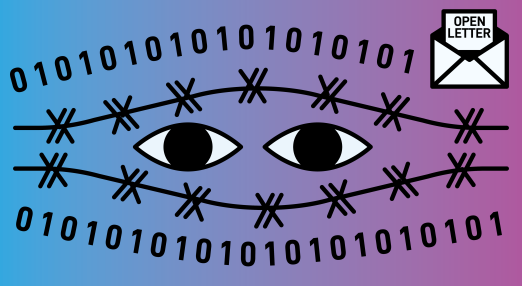
Civil society raises concerns over Europol-Egypt cooperation agreements
41 civil society organisations and experts sound the alarm about negotiations on a working agreement between Europol and Egypt. If signed it would risk legitimising illegal practices used by Egyptian police and pave the way for an exchange for personal data.
Read more
-
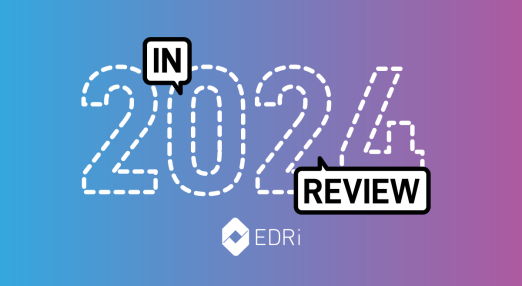
EDRi’s 2024 in Review
As we enter 2025, we look back on some of the biggest European digital rights developments, the laws passed, enforcement actions taken, and things to watch out for in the new year and the new EU mandate.
Read more
-

CSA Regulation Document Pool
This document pool contains updates and resources on the EU's proposed 'Regulation laying down rules to prevent and combat child sexual abuse' (CSA Regulation)
Read more
-

Pre-travel controls: Digitalising travel documents
We are responding to a public consultation on the European Commissions’ digitalising travel documents proposal. This proposal promises convenience in travel but could pave the way for biometric mass surveillance and automated discrimination.
Read more
-
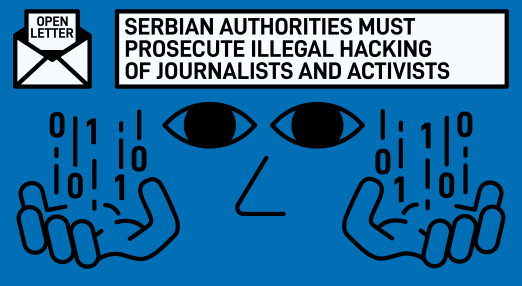
Serbian authorities must prosecute illegal hacking of journalists and activists
Today, 19 December, European Digital Rights (EDRi) and 58 organisations urge the European Union’s institutions to take action to stop the Serbian authorities’ illegal use of spyware to target journalists, activists, and members of civil society.
Read more
-

Privacy Camp in 2025
The 2025 edition of Privacy Camp has been rescheduled to September 30, 2025. This change allows for a more impactful event in light of significant political shifts in Europe in 2024, including new Members of the European Parliament and a refreshed College of Commissioners.
Read more
-

Shedding light: We address the flawed Going Dark Report
The “High Level Group on Access to Data for Effective Law Enforcement”, a.k.a. HLG Going Dark, presented its final report and recommendations for an agenda of maximal access to personal data. In an open letter we warn of the dangers and propose a better policy alternative.
Read more
-

Dear Claire
With your decision to step down as EDRi's Executive Director in the summer of 2025, we celebrate your remarkable leadership during the past seven years. Your vision, resilience, and commitment to digital rights have shaped EDRi into the robust and well established network organisation it is today.
Read more
-

EDRi-gram, 4 December 2024
This week, a new college of European Commissioners was confirmed by the European Parliament. Together with a broad civil society coalition, we welcomed them with our collective vision for EU policy that puts technology in the public interest. This call-to-action for the new leadership is crucial, given the worrying Commissioners' hearings in the European Parliament. Their focus on corporate and security interests steeped in, wrapped in a harmful logic of constant growth and control. Below, you can also read our main takeaways from the Commissioners' hearings. It was a mixed bag that reiterated the importance of our efforts towards achieving digital justice. More, we share a critical analysis of the EU's twin transition in times of crises, and its connection to green extractivism and militarisation. Romania has also been on our minds this week – with an unexpected extremist candidate winning the first round of the presidential elections. Civil society in Romania is ringing the alarm about the role that TikTok played in amplifying an existing democracy deficit and social issues, how the tech platform relates to DSA obligations, and what the EU and national authorities can do about it. Finally, EDRi's Executive Director Claire Fernandez is preparing for a leadership transition in 2025. Join us in thanking Claire for her dedication and impact, while reading some reflections below.
Read more
-
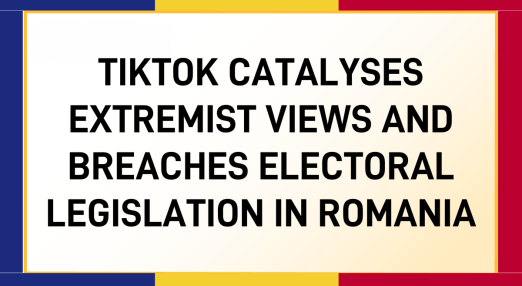
TikTok catalyses extremist views and breaches electoral legislation in Romania
Romanian civil society is alarmed about political advertisement on TikTok breaching European and national laws and how that benefited an extremist candidate in the elections. EDRi member ApTI with 20 other NGOs from Romania call upon the European Commission and the national authorities to take swift action and investigate, as elections are still ongoing.
Read more
-
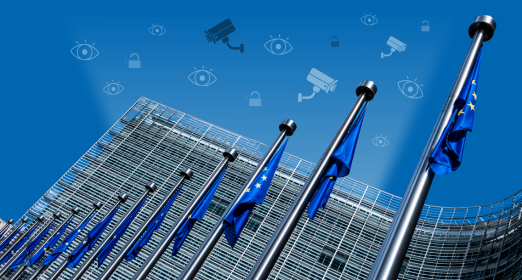
New European Commission confirmed: our takeaways on what to expect
On 1 December 2024, the new political leaders of one of the EU’s most powerful institutions – the European Commission – officially took office. As part of their nomination process, they shared their digital visions for the next five years. Spoiler alert: the fight for digital rights will be as important as ever, with data protection, encryption and privacy all on the chopping block.
Read more
-
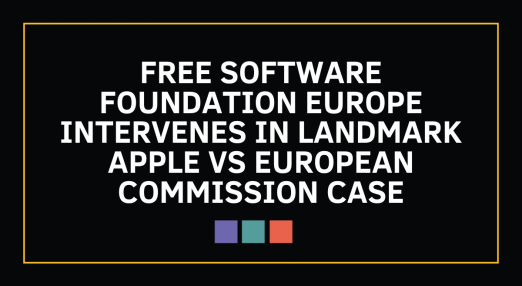
Free Software Foundation Europe intervenes in landmark Apple vs European Commission case
EDRi member Free Software Foundation Europe (FSFE) is taking a stand against Apple in a landmark case at the Court of Justice of the European Union, where the tech giant is challenging EU digital law. This intervention could help users and developers of Free Software.
Read more
